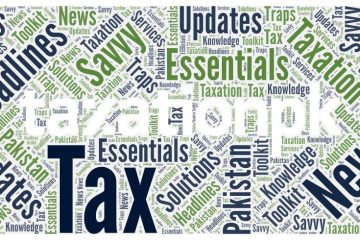Tax evasion is one of the most pressing issues in Pakistan, significantly impacting the country’s economic growth and governance. Despite various reforms, tax evasion continues to undermine government revenues, widen fiscal deficits, and hinder development projects. This article delves into the causes, methods, and consequences of tax evasion in Pakistan, alongside actionable solutions to combat this critical problem.
Understanding Tax Evasion
Tax evasion refers to the illegal practice of not paying taxes by individuals, businesses, or entities. In Pakistan, this is often achieved by underreporting income, overstating deductions, or failing to file tax returns altogether. The informal economy, loopholes in tax laws, and a lack of enforcement exacerbate the problem.
Causes of Tax Evasion in Pakistan
- Complex Tax System
Pakistan’s tax system is often perceived as complicated and burdensome, discouraging voluntary compliance. High tax rates and multiple layers of taxation push individuals and businesses toward evasion. - Informal Economy
A significant portion of Pakistan’s economy operates informally, making it difficult for tax authorities to track and collect taxes. This informal sector often escapes regulatory scrutiny, contributing to large-scale tax evasion. - Weak Enforcement Mechanisms
The Federal Board of Revenue (FBR) lacks sufficient resources and modern technology to detect and penalize tax evaders effectively. Corruption within tax administration further weakens enforcement. - Lack of Awareness and Incentives
Many taxpayers lack awareness about the importance of tax compliance. Additionally, the absence of visible benefits like improved public services reduces the motivation to pay taxes. - Corruption and Loopholes
Corruption within tax authorities and legal loopholes allow individuals and businesses to evade taxes without facing significant consequences.
Methods of Tax Evasion
- Underreporting of Income: Businesses and individuals often hide their true earnings to avoid paying higher taxes.
- Fake Invoices: Generating fake invoices to inflate expenses and reduce taxable income is a common practice.
- Offshore Accounts: Wealthy individuals park their funds in offshore accounts to avoid local tax obligations.
- Cash Transactions: Conducting business in cash makes it harder for authorities to trace taxable income.
- Non-Filing of Returns: Many eligible taxpayers simply fail to file tax returns, especially in the informal sector.
Consequences of Tax Evasion
- Revenue Loss
Tax evasion costs the government billions in lost revenue annually, contributing to fiscal deficits and reliance on external borrowing. - Economic Instability
Insufficient tax collection leads to inadequate funding for infrastructure, education, and healthcare, affecting overall economic stability. - Inequality
Tax evasion exacerbates income inequality as the burden of taxation shifts to compliant taxpayers, often from lower and middle-income groups. - Erosion of Trust
When citizens perceive widespread tax evasion and corruption, trust in government institutions declines, further reducing tax compliance.
Solutions to Combat Tax Evasion
- Simplifying the Tax System
Streamlining tax processes and reducing compliance costs can encourage voluntary tax payments. Introducing user-friendly digital platforms for filing returns is a step in the right direction. - Strengthening Enforcement
Equipping the FBR with advanced technology, like data analytics and artificial intelligence, can improve detection of tax evasion. Increasing penalties for evaders will also act as a deterrent. - Expanding the Tax Net
Bringing the informal sector under the tax net is crucial. This requires collaboration between tax authorities and other regulatory bodies to track unregistered businesses. - Public Awareness Campaigns
Educating citizens about the importance of paying taxes and linking tax compliance to visible improvements in public services can boost voluntary compliance. - Addressing Corruption
Implementing strict anti-corruption measures within tax administration and automating processes can reduce the scope for bribery and fraud. - Tax Incentives
Offering incentives like lower rates for timely filing and compliance rewards can motivate individuals and businesses to pay taxes.
Role of Technology in Reducing Tax Evasion
Modernizing Pakistan’s tax infrastructure is vital. Solutions like real-time monitoring of transactions, digital payment systems, and blockchain technology can increase transparency and minimize evasion. The integration of digital wallets and linking CNIC data to financial transactions can also help track unreported incomes effectively.
The government of Pakistan has introduced several measures to combat tax evasion, including:
- Introduction of POS Systems: Installing Point of Sale systems in retail outlets for real-time tracking of sales.
- Integration of Tax Data: Collaborating with banks, telecom companies, and real estate registries to detect tax evasion.



